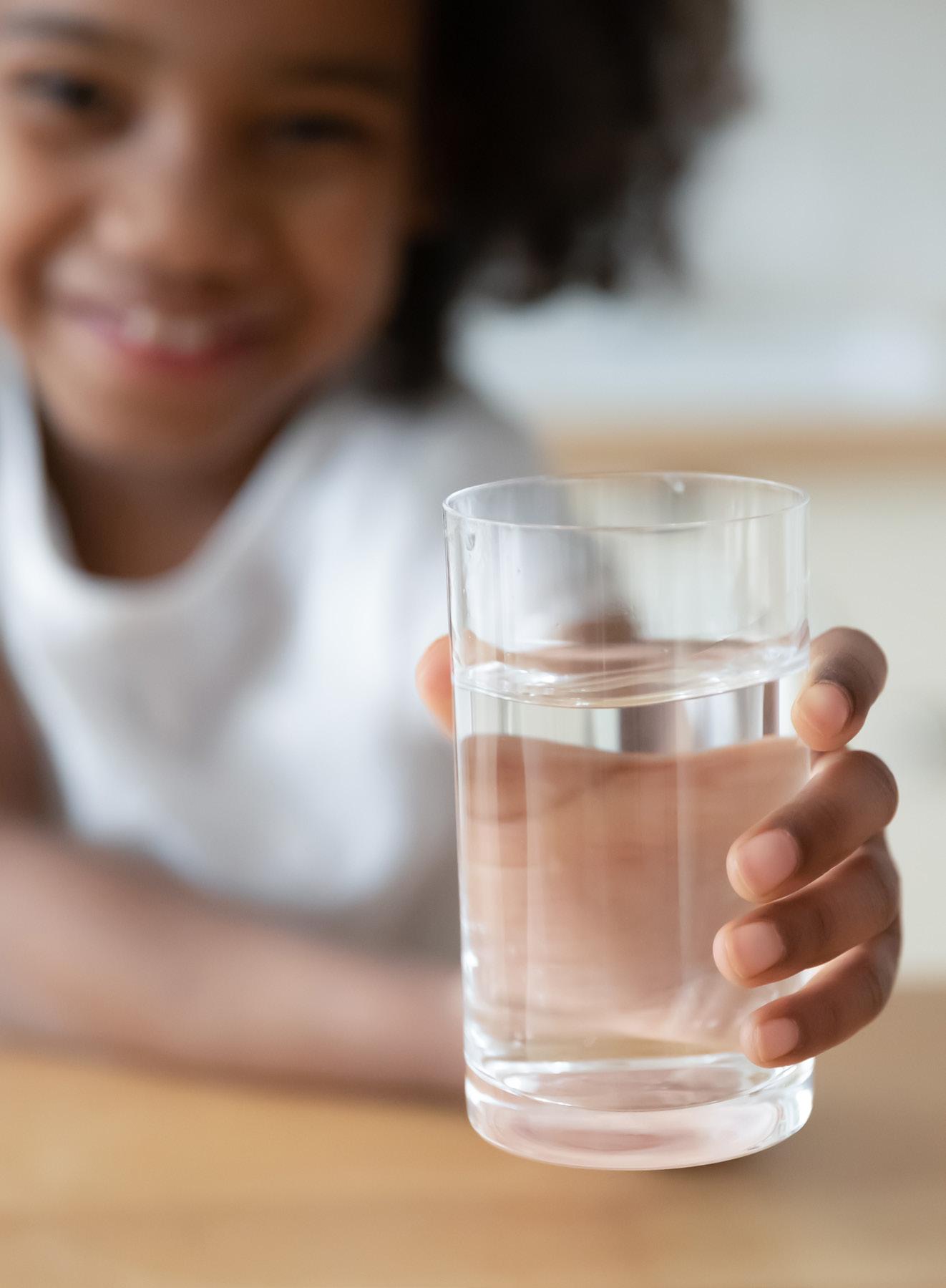
2 minute read
Health Concerns
Some people may be more vulnerable to contaminants in drinking water than the general population. Immuno- compromised persons such as persons with cancer undergoing chemotherapy, persons who have undergone organ transplants, and people with HIV/AIDS or other immune system disorders. Some elderly and infants can be particularly at risk from infections. These people should seek advice about drinking water from their health care providers. EPA/CDC guidelines on appropriate means to lessen the risk of infection by Cryptosporidium and other microbial contaminants are available from the Safe Drinking Water Hotline at 1-800-426-4791.
GLWA voluntarily monitored our source water for the presence of Cryptosporidium and Giardia. In 2020, the presence of Cryptosporidium and Giardia were detected in the source (untreated) water at the Belle Isle Detroit River Intake serving Water Works Park, Springwells and the Northeast water treatment plants. Cryptosporidium was detected once in March and Giardia once in April. All other samples monitored in 2020 were absent the presence of Cryptosporidium and Giardia. Current test methods do not enable us to determine if these organisms are dead or if they can cause disease. Symptoms of infection include nausea, diarrhea, and abdominal cramps. Most healthy individuals can overcome the disease within a few weeks. However, immuno-compromised people have more difficulty and are at greater risk of developing severe, life-threatening illness. Immuno-compromised individuals are encouraged to consult their doctor regarding appropriate precautions to take to prevent infection. Cryptosporidium must be ingested for it to cause disease and may be passed through means other than drinking water. Surface water treatment systems must provide treatment so that 99.9% Giardia is removed or inactivated.
Advertisement
If present, elevated levels of lead can cause serious health problems, especially for pregnant women and young children. Lead in drinking water is primarily from materials and components associated with service lines and home plumbing. DWSD is responsible for providing high quality drinking water but cannot control the variety of materials used in plumbing components. When your water has been sitting for several hours, you can minimize the potential for lead exposure by flushing your tap for 30 seconds to 2 minutes before using water for drinking or cooking. If you have a service line that is lead, galvanized previously connected to lead, or unknown but likely to be lead, it is recommended that you run your water for at least 5 minutes to flush water from both your home plumbing and the lead service line. If you are concerned about lead in your water, you may wish to have your water tested. Information on lead in drinking water, testing methods, and steps you can take to minimize exposure is available from the Safe Drinking Water Hotline at 1-800-426-4791 or at http://water.epa.gov/drink/info/lead.








